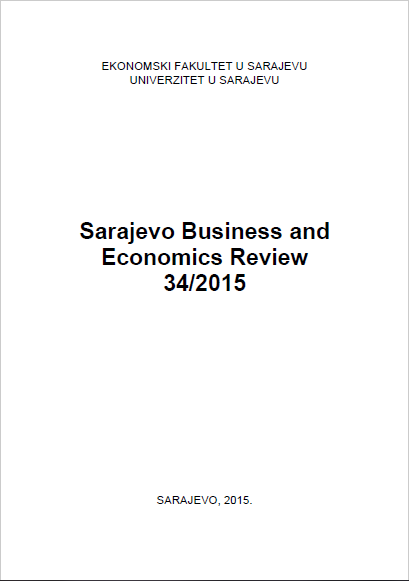ROLE OF PIFC IMPLEMENTATION ON THE DEVELOPMENT OF INTERNAL AUDIT AND CONTROL AND ITS EFFECTS ON THE REFORM OF THE PUBLIC SECTOR IN B&H
ROLE OF PIFC IMPLEMENTATION ON THE DEVELOPMENT OF INTERNAL AUDIT AND CONTROL AND ITS EFFECTS ON THE REFORM OF THE PUBLIC SECTOR IN B&H
Author(s): Meliha Bašić, Mirjana Ribić, Lejla Jahić, Erna BajraktarevićSubject(s): Public Administration, Economic policy, Evaluation research, EU-Approach / EU-Accession / EU-Development
Published by: Ekonomski fakultet u Sarajevu
Keywords: PIFC; public internal financial control; the public sector; harmonization; internal audit; public administration reform;
Summary/Abstract: One of the key reforms in the public sector in B&H in accordance with EU requirements, among other things, is the establishment and development of PIFC - Public Internal Financial Control in the public sector, developed by the European Commission, as a means of ensuring good financial management and control for the potential candidate countries for EU accession. This especially involves the financial management and control, functionally independent internal audit and independent external audit systems, and the adoption of appropriate legislation in the public sector. In the context of these changes, Bosnia and Herzegovina and its two entities have different speeds of progress on the adoption of the relevant documents of the PIFC policy. This is due to their different legislative and administrative capacity, and due to their different problems and needs. Slow harmonization of regulations and their application in this field in B&H is also directly linked both to the development of internal audit and financial control of the sector, and to the general reforms of the sector. The purpose of the research is to show what level of the implementation of PIFC B&His in when compared to the neighboring countries, what impact does the PIFC have on the development of internal audit and financial control in the public sector, as well as its impact on the reforms of the public sector in B&H in general, and what are the most important consequences of their (non) implementation. Given the complexity of the problem and research, as well as the objectives of this study, the hypothesis is: "Slow implementation of PIFC in B&H has a negative impact on the development of internal audit and financial control, which leads to their ineffectiveness and inefficiency and prevents the successful implementation of the overall reform of public sector in B&H." The research methodology will be conducted through surveys and empirical research, and appropriate statistical analysis. Results will be presented not only through statistical analysis, but also through tabular overviews through which will show the main reasons and consequences of slow and inadequate implementation of the PIFC in the public sector of Bosnia and Herzegovina. The end results can both indicate the causes and the main protagonists of these causes, which is certainly one of the most important political implications of the given research.
Journal: Zbornik radova - Sarajevo Business and Economics Review (SBER)
- Issue Year: 2015
- Issue No: 34
- Page Range: 9-29
- Page Count: 21
- Language: English

